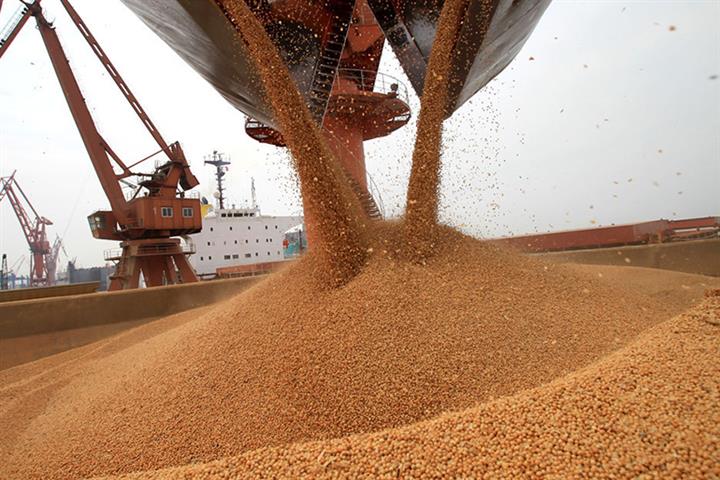 China’s Grain Imports Fall Nearly 12% in First 11 Months Amid Global Turmoil, Softer Demand
China’s Grain Imports Fall Nearly 12% in First 11 Months Amid Global Turmoil, Softer Demand(Yicai Global) Dec. 9 -- China’s grain imports shrank 11.8 percent between January and November from a year earlier, mainly due to international disruption and weakening demand at home, according to industry insiders.
China imported 133.2 million tons of grain in the 11 months ended Nov. 30, data released by the General Administration of Customs showed on Dec. 7. Imports of vegetable oil and meat plunged nearly 42 percent and 23 percent, respectively.
Grain imports fell mainly because of disruption in the Black Sea area, Zheng Wenhui, a food economy researcher at Guangdong South China Grain Trading Center, told Yicai Global.
China imported 5.1 million tons of grain from Ukraine in the 10 months ended Oct. 31, about half of the year-earlier amount. China is also very dependent on Ukraine and the United States for corn.
Rising international food prices and the US dollar’s appreciation against the Chinese yuan also narrowed the price advantage of imported grain, Zheng pointed out.
In the first half of the year, China’s industrial feed production fell 5 percent from a year ago and did not rebound until September, leading to an overall decrease in demand for feed grain in the first 10 months, Zheng added.
Another factor skewering the grain import figures was the extremely high base of the past two years, Zhang Zhixian, vice president of cngrain.com’s Yida Research Institute, told Yicai Global. To cope with changes in the external environment, China imported some grain in advance, with the volumes shipped in last year and in 2020 hitting record highs.
Since last year, the share of grain and cereal flour in China’s grain imports has surged. The figure remained around 20 percent between 2016 and 2020, but doubled to nearly 40 percent in 2021, as corn imports soared to almost 30 million tons from a few million. Since the Russia-Ukraine conflict, international grain prices have skyrocketed, resulting in a falloff in imports.
Under the twin effects of declining imports and a continuous pickup in domestic feed demand, China’s supply and demand of feed grain will further tighten, and the prices of corn, soybean meal, wheat, and other varieties will remain high, Zheng predicted.
Editors: Shi Yi, Futura Costaglione